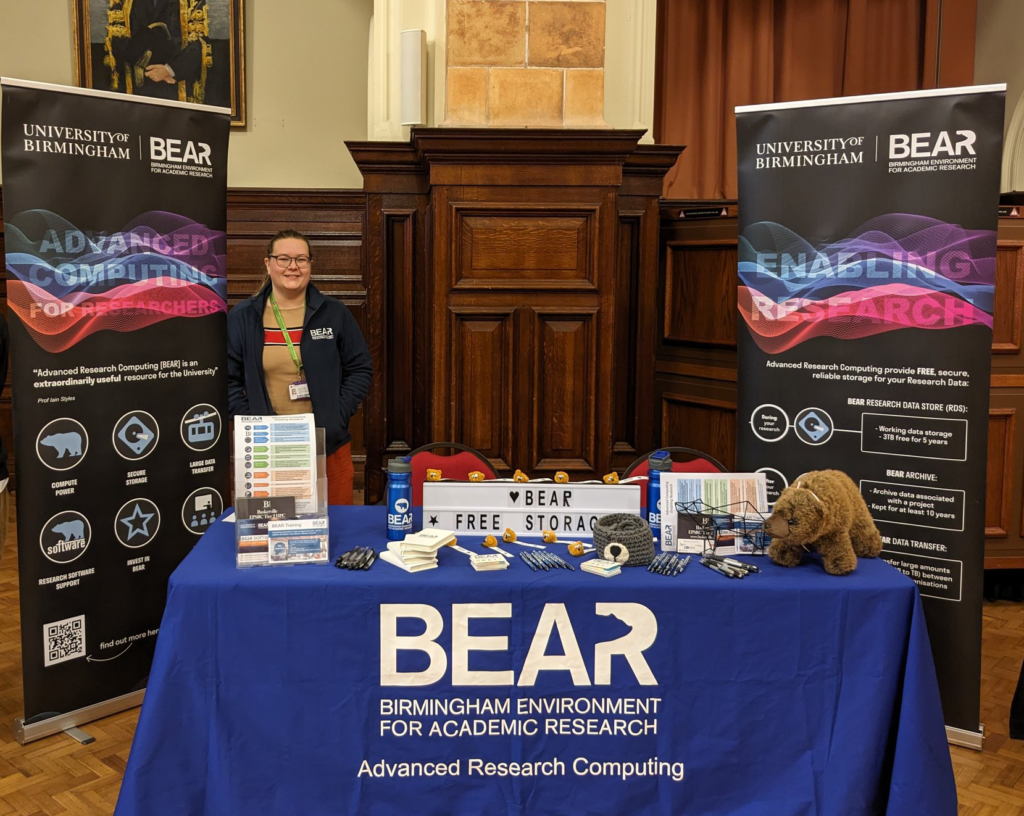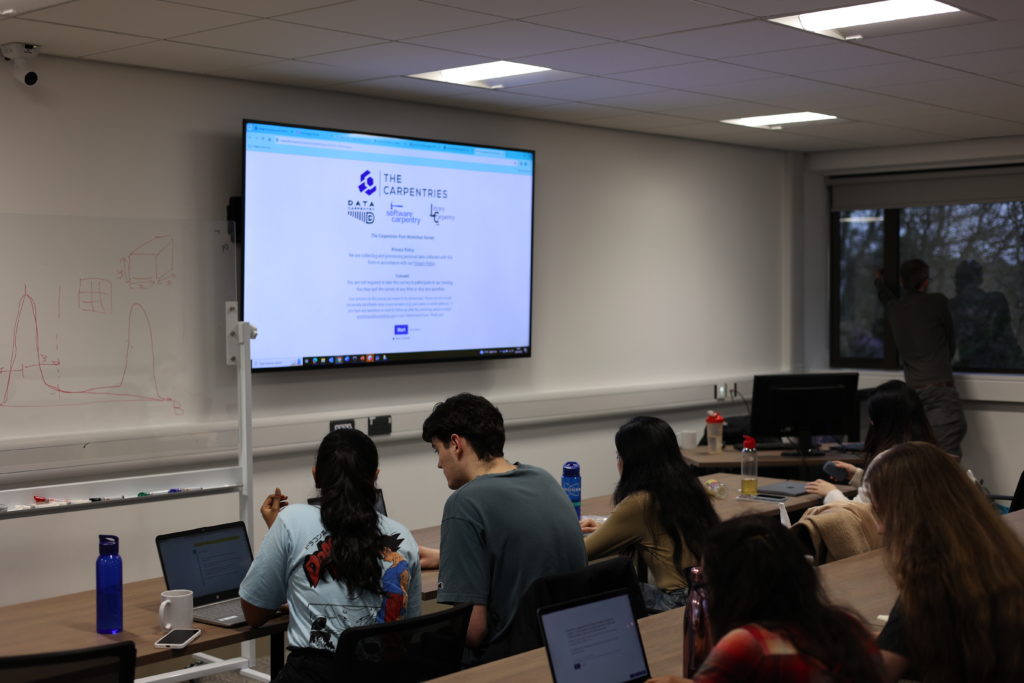Back in Autumn 2023, we were pleased to have an intern join us for 3 months for their Professional Internship for PhD Students (PIPS) placement, as part of the Midlands Integrative Biosciences Training Partnership (MIBTP). You can find out what PhD student Kirsty McCready got up to in the article below.

The MIBTP is a 4-year BBSRC funded PhD studentship, which consists of one year of training and rotations covering areas such as computer programming and data science, both of which are very relevant to the work of our Advanced Research Computing (ARC) team. As part of the MIBTP, the PhD students also need to complete a non-academic 3 month internship (PIPS), to gain professional career skills. The Researcher Engagement and Data Group (REDG) was a good fit for Kirsty to join, as we run many training and induction events within the areas of data science and computer programming. Autumn is a very busy time for REDG, as we attend as many events as possible to meet new PhD students, and academic staff – with Kirsty in the team, we were able to run extra events and provide better coverage at events run by other areas of the University.
When Kirsty started, we discussed three separate projects that she would work on, in addition to supporting general day-to-day activities within REDG:
- To plan, organise and run a Digital Research Conversation event
- To deliver a Software Carpentries workshop on Programming with R for researchers at the University
- To review and edit a BEAR case studies booklet for publication
For the first project, Kirsty planned and executed a successful 9th Digital Research Conversation around the topic of ‘Sustainable Computing’ for both research staff and students. She was given complete autonomy in running the event from start to finish – finding speakers, advertising, chairing and writing up the event – see Digital Research Conversations – Sustainable Computing blog post.
I was surprised by the amount of work that goes into planning and running an event. What to an attendee is a 2 hour event, is, to the organisers, months of work and preparation. Sending continual reminders and updates to attendees and speakers was something that I hadn’t considered before running my own event.
Kirsty
During her internship, Kirsty also helped to establish a University of Birmingham Special Interest Group for the programing language R, hosting the first event – Tidy Tuesday. She was also the programme organiser for the BEAR Conference, which ran in April. If you are a PostGraduate Reseacher (PGR) or Early Career Researcher (ECR), and interested in getting involved in running the next BEAR Conference, then take a look at the blog post on BEAR PGR/ECR conference opportunity.
For the second project, before Kirsty could deliver a Carpentries workshop she needed to complete the Carpentries Instructor training, designed to develop your general teaching skills, as well as provide an opportunity to practice live coding. We fund a limited number of researchers to become instructors over a year, which then enables us to deliver Software and Data Carpentries to other researchers at the University, supported by ARC staff. Kirsty describes the training in her own words below:
I particularly enjoyed the Carpentries instructor training and was surprised by the quality of the training. I learned the important fundamentals of teaching and new techniques such as feedback and reflection, using errors as a teaching point, avoiding dismissive language, and setting expectations. Teaching a workshop one month after completing my training enabled me to put these new skills into practice. Teaching a live coding class for the first time was challenging, and I asked for feedback throughout to continually improve my teaching. Overall, it was a great experience that I will continue to use in the future. I also plan to continue leading workshops for BEAR. Should I leave the University, Carpentries workshops are taught around the globe, so I can take my skill anywhere.
Kirsty

Carpentries Instructor training is well recognised in the academic world, and is a valuable professional development opportunity – contact bearinfo@contacts.bham.ac.uk if you’re interested and have experience in a programming language. After the training, Kirsty then went on to develop her own teaching material from the open-source Carpentries curriculum, delivering live coding demos to more than 30 people in one of our most well-attended workshops of the year!
Lastly, to develop her skills in editing, Kirsty summarised the case studies we had received from researchers into one-page articles, sourcing high-quality images and improving the layout of the case study booklet. The ability to summarise complex information from unfamiliar topics is an important skill for scientific communications. You can find the case study booklet via the ePapers link here.
During Kirsty’s internship, there was an opportunity to attend the national conference for research computing – Computing Insight UK. At the conference she attended talks on advances in the field, as well as engaging with research computing professionals and industry representatives to promote both our national Tier-2 supercomputer Baskerville, as well as herself, with opportunities to discuss a potential career in the area.
As well as gaining skills in varying areas, the internship has helped Kirsty to see the various different career pathways in research computing, including pursuing data science via a Professional Services route, rather than via Academia or industry. Data Science and Research Software Engineer roles within Advanced Research Computing (see ‘The BEAR team’ posts for examples) are usually permanent, as opposed to the often fixed-term nature of roles in academia. Having a PhD student working within the team was very beneficial to us too, as we were able to both get a current researchers’ perspective on using our services, as well as Kirsty having the existing knowledge of research and computing to be able to quickly contribute to the team via technical writing and delivering training.
